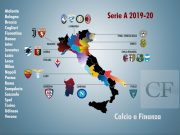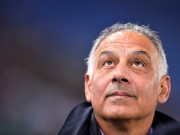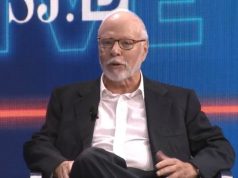Nowadays the Premier League is considered the best league in the world. The economic value of the clubs “fighting” to win the British title is enormous. Rich owners from everywhere in the world landed in the U.K. investing substantial capital in football in the course of the last 10 years. Last year, the Football Association (FA) introduced new regulations in reference to the player agents, nowadays called intermediaries. According to this new set of rules, anybody advising or negotiating on behalf of a player or club the terms of any deal must be registered as an “intermediary” with the FA and reported to the governing body on an official form recording the transfer.
The list of the intermediaries includes “super agents” like Jorge Mendes, Mino Raiola and Pini Zahavi, who closed several deals, signed new contracts, and sold players from the English clubs to overseas sides. According to The Guardian the clubs spent around £1bn during the year covered by the FA document. Almost every player has an agent advising on pay, bonuses, and the duration and terms of contracts that are stipulated in English football. Although the role of intermediaries is pivotal in today’s football some players may still choose not to exploit the services of these agents.

In light of that said above, English football is at the center of an investigation. In this intricate case many parties are involved such as intermediaries, clubs, and players. So far, there’s no evidence that someone hasn’t acted lawfully. The British newspaper The Guardian only pointed out that there is a bit of confusion between what the new FA regulations are stating and some transfer of players performed by some clubs. Reportedly, the two clubs under the spotlight are Chelsea and Watford.
In order to properly understand the subject matter we have to step back and recall what happened a decade ago when in agreement with HMRC this new system was developed. We are talking about what the British newspaper called the landmark tribunal victory against Birmingham City. As reported by The Guardian the case established that agents who were recorded as having acted only for the club, without representing the player, were in fact the players’ agents and had acted for both parties in the deal. This practice, known as “switching” was challenged by HMRC arguing that the public were being deprived of tax.
To have a better idea on how tax works in the world of football it is necessary to explain that when a player pays an agent, the player as an individual pays VAT and cannot reclaim it, whereas a club, as a VAT-registered company, can reclaim it. On the other side, if a club takes care of the player’s agent’s fee, paying it on behalf of the player, that payment constitutes a financial benefit for the player, on top of his salary. So the player must pay income tax on that benefit, invariably at the higher rate of 40%. The situation changes if an agent has acted for the club. In this case the fee is paid and there is no such income tax payable on it. HMRC’s successful challenge against Birmingham led to a reclaiming of VAT from many clubs which had indulged in the same practice.
The bottom line of this intricate story is that The Guardian discovered that some of the intermediaries listed as having acted only for Chelsea and Watford, in deals to sign players who had no advice, in fact have apparent connections to those players. In light of that, the record disclosed by the FA seems to be confusing. The question that arises is therefore the following:
Why do these clubs choose to pay an agent to secure the deal with a player, while the player himself has no professional advice at all?







































